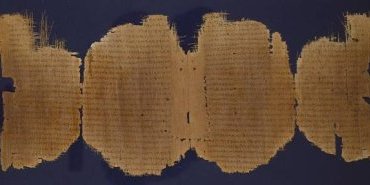L’auteur
Emran el Badawi est docteur (PhD) et Maitre de Conférence à l’Université de Houston (Department of Modern & Classical Languages). Un de ses domaines de recherche est une approche comparative de la littérature syriaque avec le Coran.
Education
Dr. Emran El-Badawi joined the department of Modern and Classical Languages in fall of 2011. Prior to becoming a member of the faculty at the University of Houston, Emran completed his PhD with distinction in 2011 from the department of Near Eastern Languages and Civilizations at the University of Chicago. He took an MA in Religion from Temple University in 2005 and a BA in Religion as well as Computer Science from Rutgers University in 2003. He has also lived in the Middle East and South East Asia. (Source http://www.uh.edu/class/mcl/faculty/el-badawi_e/index.php)
Presentation de l’ouvrage
This book is a study of related passages found in the Arabic Qur’an and the Aramaic Gospels, i.e. the Gospels preserved in the Syriac and Christian Palestinian Aramaic dialects. It builds upon the work of traditional Muslim scholars, including al-Biqa‘i (d. ca. 808/1460) and al-Suyu ?i (d. 911/1505), who wrote books examining connections between the Qur’an on the one hand, and Biblical passages and Aramaic terminology on the other, as well as modern western scholars, including Sidney Griffith who argue that pre-Islamic Arabs accessed the Bible in Aramaic.
The Qur’an and the Aramaic Gospel Traditions examines the history of religious movements in the Middle East from 180-632 CE, explaining Islam as a response to the disunity of the Aramaic speaking churches. It then compares the Arabic text of the Qur’an and the Aramaic text of the Gospels under four main themes : the prophets ; the clergy ; the divine ; and the apocalypse. Among the findings of this book are that the articulator as well as audience of the Qur’an were monotheistic in origin, probably bilingual, culturally sophisticated and accustomed to the theological debates that raged between the Aramaic speaking churches.
Arguing that the Qur’an’s teachings and ethics echo Jewish-Christian conservatism, this book will be of interest to students and scholars of Religion, History, and Literature.
Table des matieres
- 1 Sources and Method
- 2 Prophetic Tradition in the Late Antique Near East
- 3 Prophets and their Righteous Entourage
- 4 The Evils of the Clergy
- 5 The Divine Realm
- 6 Divine Judgement and the Apocalypse
- 7 Data Analysis and Conclusion

